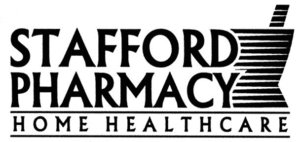Pharmacists are the most easily accessible health professionals, however their services continue to be undervalued and underutilized. The pharmacist is considered the drug information expert and their knowledge should be used as such.
How can your pharmacist help you?
Here is a list of things that your pharmacist can help you with!
- Answer questions about your general health, disease prevention, disease, and acute illness
- Assess your condition and determine whether you should see your physician or another health care professional
- Provide advice on the use of over-the-counter medications, vitamins, herbal supplements, homeopathic remedies and prescription medications
- Offer assistance for those trying to quit smoking or reach weight loss (diet and exercise) goals
- Ensure accuracy, appropriateness, safety, effectiveness of the prescription written for you by your physician
- Provide you with information about your prescription medications and give guidance on how to take them appropriately
- Monitor and help manage the treatment of chronic medical conditions such as diabetes or high blood pressure
- Follow-up with you to assess the efficacy and safety of your medications
- Provide methods to make taking your medications easier, and to help you to remember to take your medications
How can I help the pharmacist help me?
In order for your pharmacist to provide the best care for you, they will need to know the answers to some important questions. Here are a few samples of the questions that your pharmacist will ask:
- Demographic information (including Alberta Health Care number)
- Do you have any allergies to any medications?
- What are your past and current medical conditions?
- What medications are you currently taking?
- What symptoms are you currently experiencing?
- Are you using any over-the-counter medications, herbals, or vitamins?
The answers to these questions are extremely important, and help the pharmacist provide advice or treatment properly. Be honest when you answer these questions. The pharmacist cannot share your health information with anyone as they are bound by the privacy act. Withholding your health information from the pharmacist could put you at risk. For example, if the doctor writes a prescription for you for nitroglycerine and you take it to a pharmacy, the pharmacist needs to know what other medications you take. If you take Viagra, but have it filled at another pharmacy and are embarrassed to tell this pharmacist it could result in a life threatening interaction. Never be afraid to talk to your pharmacist, this tip could save your life.
Choose one pharmacy and stick with it.
Your pharmacist is an important part of your healthcare team. The more your pharmacist knows about your health, the better they are able to help. Using only one pharmacy greatly helps to reduce the chance of duplication of therapy and drug interactions. Every year thousands of people are admitted to the hospital because of the improper use of medications. Using one pharmacy ensures the pharmacist is aware of any potential problems with your medication therapy.
How can you ensure you are using your medications safely?
Remember the 3R’s of medication safety.
1) Risk— All medications (over-the-counter and prescription), herbals, and vitamins have risks associated with taking them. Before using anything, check with your pharmacist to ensure that the benefit of the product outweighs the risk.
2) Respect—Respect the power of the medication and its ability to benefit you, but also to cause harm if used inappropriately.
3) Responsibility— Take responsibility to learn about your medications and how to use them correctly. When in doubt ask! There is no such thing as a stupid question!


